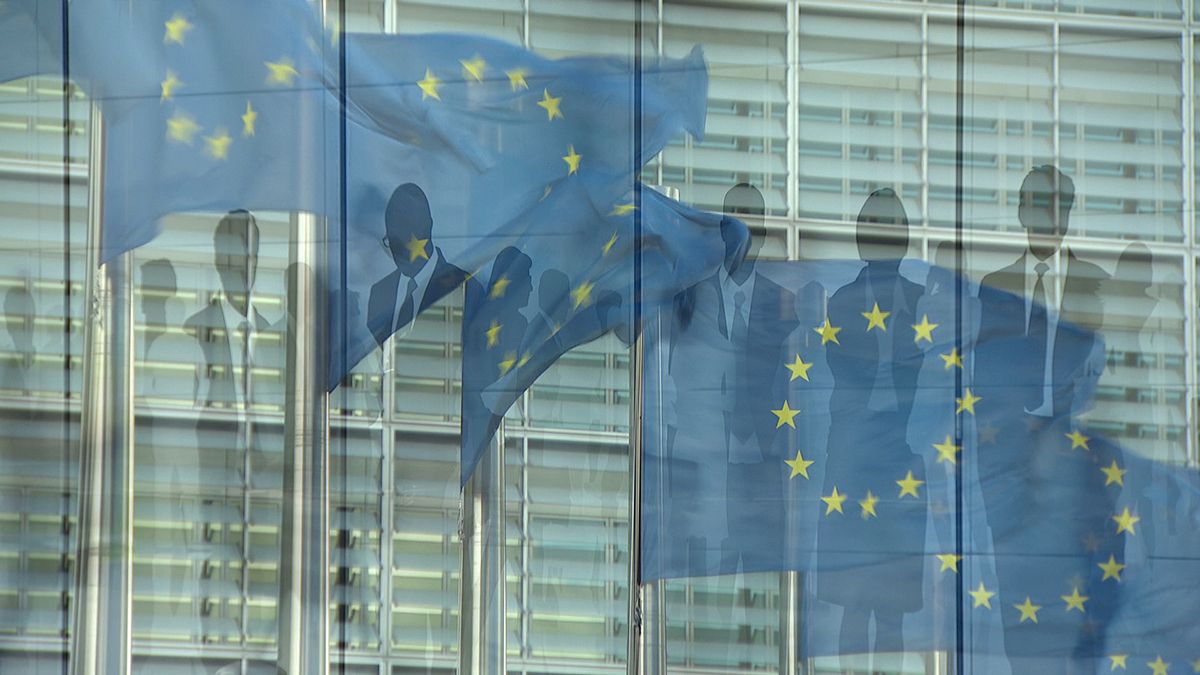“This Belgian waffle cost me two euros.
“This Belgian waffle cost me two euros. More than twice what the EU budget represents per day and per person. So is it so expensive and poorly managed as is sometimes said? We came to seek answers in Brussels, the capital of the European institutions,” reported euronews correspondent Valerie Gauriat from the Belgian capital.
The way in which European taxpayers’ money is spent is often questioned. But to what are we actually referring? First of all, a relatively small budget.
In 2016 it amounted to about 158 billion euros. That is one per cent of the total GDP of the 28 Member States. Or 85 euro cents per day, for each taxpayer.
The administrative costs of the European institutions
represent six per cent of the expenditure.
The remainder finances programs for the Member States and actions in third countries.
Marc Rogerson is the spokesperson for the European Court of Auditors. It controls the way the budget is spent.
Agriculture, natural resources or regional policy, which are the largest beneficiaries of European funds, are where misspending is highest.
“A bit less than 4 percent of the money is misspent, not spent in accordance with the rules. If for example a contract is awarded, and the procedure wasn’t followed properly, the contract wasn’t advertised properly, that’s not in accordance with the rules. Beyond that, we do get cases where there’s an airport with no planes, there’s a seaport with no ships. That’s where waste comes in and when we find that we say so,” he explained.
In cases of deliberate fraud, the files are referred to OLAF, the European anti-fraud organization.
In 2015, it recommended the recovery of nearly 900 million euros. Against some 187 million recovered from frauds identified in previous years.
According to OLAF, fraud attributed to staff and members of the institutions of the European Union accounts for less than one per cent of the total amount.
The bulk of fraud involves structural and social funds, followed by customs, trade and foreign aid.
The European anti-fraud organisation has no disciplinary power. Its recommendations for prosecution are not always followed by the national authorities.
Added to this is the difficulty of tracking crime that has no borders, stresses the head of OLAF. He advocates the creation of a European Public Prosecutor’s Office.
“The illicit financial transactions have an open market. When it comes to the justice, there is no single market. And if you want to cross a border to do an investigation on a crime which has been committed with actions at the same time in three member States or more, things are very complicated. We need more Europe there,” opined Giovanni Kessler, Director General, OLAF.
More judicial Europe, one of the themes among others, in the debate on a multi-speed Europe within the European Council.
An idea supported by the President of the European Commission Jean-Claude Juncker. But he wants less Europe, when it comes to regulations.
“We no longer want to infiltrate all aspects of the daily life of Europeans. I fought like a lion, against the will of a number of misguided commissioners, to regulate toilet flushes at the European level!” he said.
“The President of the European Commission no longer wants to legislate on flushing, and is crusading against bureaucracy, in order in principle, to save European citizens time and money. But in fact, it’s not that simple,” explained Valerie Gauriat.
The deregulation policy of the Commission may on the contrary cost Europeans dearly, says Brussels based NGO Corporate Europe Observatory.
Fewer rules mean fewer protections for citizens, says this CEO spokesperson.
“This better regulation agenda creates new obstacles for health and environment regulations that are needed. And it gives industry a lot of very powerful new tools to weaken what the commission proposes. And we’ve seen many examples of that in the last few years. To mention just a few, the commission had to come up with a definition of endocrine disrupting chemicals that are causing hundreds of thousands of people to get ill every year, and die prematurely.
‘And that decision was delayed by many years, and in the end the definition that the commission made was weakened very substantially by industrial lobbying,” said Olivier Hoedeman, Research Coordinator, Corporate Europe Observatory.
Defending the interests of citizens is the European Ombudsman’s mission.
Emily O’Reilly and her team investigate cases of maladministration by EU institutions and bodies, or conflicts of interest involving European officials.
Such as the Barroso case, former head of the Commission, recruited by Goldman Sachs.
The mediator also wants more transparency from decision makers. One of her latest crusades is making the Brexit negotiations public.
“People do want to know how decisions are made. And that’s the key area of transparency that I work on. If you examine that a little bit, which institution is not being transparent? The Commission is reasonably transparent. The Parliament is reasonably transparent. It’s actually the Council that one finds is the least transparent.
‘But what is the Council? The Council is the member States! Very often, it’s the member States and politicians from the member States who don’t wish to be transparent. Because there’s the possibility of being able to play in Brussels for things that ultimately the citizens don’t like,” she concluded.


